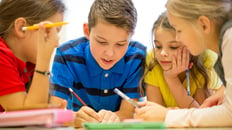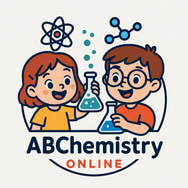Benefits of Learning Chemistry
Learning chemistry from childhood offers numerous benefits that shape a child’s cognitive, emotional, and practical development while fostering a lifelong curiosity for science.
Write a short text about your service
Write a short text about your service




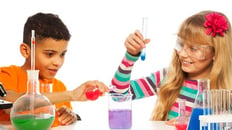

1. Builds a Strong Foundation for Scientific Thinking Starting chemistry early introduces children to fundamental concepts like atoms, molecules, and chemical reactions in a simplified, engaging way. This foundational knowledge makes advanced topics easier to grasp later, such as balancing equations or understanding thermodynamics. For example, a child who learns about states of matter through a baking soda and vinegar experiment can later connect that to the concept of gas production in chemical reactions, setting a strong base for high school chemistry.
2. Enhances Problem-Solving and Critical Thinking Skills Chemistry encourages kids to ask questions, make predictions, and test hypotheses, fostering critical thinking. When children mix ingredients to create slime or observe a color change in a pH experiment, they learn to analyze cause-and-effect relationships. Research suggests that early exposure to STEM subjects, including chemistry, improves logical reasoning, as kids learn to approach problems methodically—skills that are transferable to math, reading, and even decision-making in daily life.
3. Sparks Curiosity and a Love for Learning Chemistry is inherently exciting for children, with its colorful reactions, fizzing experiments, and hands-on activities. Early exposure through fun, interactive lessons—like virtual labs or simple experiments—ignites curiosity and a passion for discovery. A child who sees a “magic” color change in a cabbage juice indicator experiment might develop a lifelong interest in science, potentially pursuing STEM careers. Studies show that early engagement in science increases the likelihood of children choosing STEM fields later, as noted in resources like ACS’s “Kids & Chemistry” program.
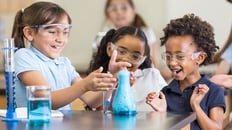

4. Develops Practical Life Skills Chemistry teaches practical skills that kids can apply in everyday life. Understanding basic concepts like mixing substances, measuring ingredients, or recognizing safe vs. unsafe materials (e.g., why bleach and ammonia shouldn’t be mixed) promotes safety awareness. For instance, a child learning about the chemistry of cooking—like how baking soda helps dough rise—gains skills they can use in the kitchen, fostering independence and confidence.


5. Encourages Environmental Awareness Early chemistry lessons often include topics like water purification, recycling, or the effects of pollution, helping children understand their environment. A young learner exploring how plants use carbon dioxide in photosynthesis begins to appreciate nature’s chemical processes, fostering a sense of responsibility toward sustainability. This awareness can lead to eco-friendly habits, such as reducing waste or conserving resources, which are critical in today’s world.
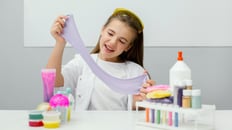

6. Boosts Creativity and Imagination Chemistry’s hands-on nature stimulates creativity. When kids experiment with creating slime, making a lava lamp, or mixing colors, they’re encouraged to think imaginatively and explore “what if” scenarios. This creative problem-solving can extend to other areas, like art or storytelling, as they invent new experiments or share their findings through drawings and stories.


7. Prepares for Future Academic and Career Opportunities Early exposure to chemistry gives children a head start in STEM education, which is increasingly vital in a tech-driven world. Familiarity with chemistry concepts can make high school and college courses less daunting, improving academic performance. Moreover, it opens doors to diverse careers—chemists, doctors, engineers, or environmental scientists—where chemistry knowledge is essential. Statistics from STEM advocacy groups show that early STEM engagement correlates with higher STEM career interest, especially for underrepresented groups.
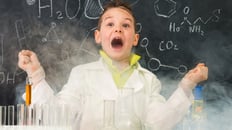

8. Promotes Confidence and Resilience Chemistry experiments teach children that failure is part of learning. If a reaction doesn’t work as expected, they learn to troubleshoot and try again, building resilience. Successfully completing an experiment, like making a balloon inflate with a chemical reaction, boosts their confidence and sense of achievement.
